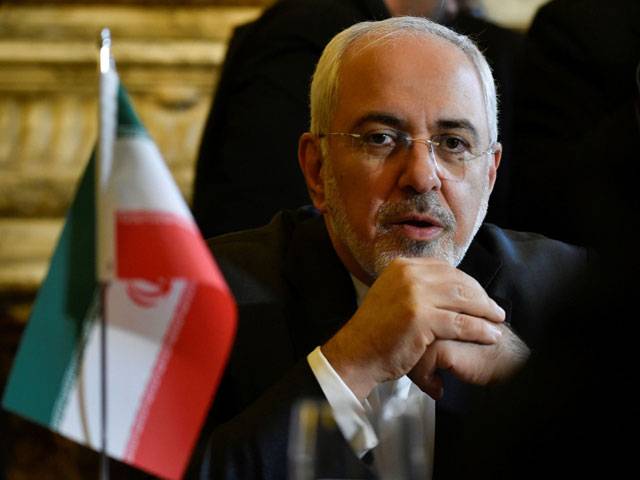TEHRAN - Iran on Saturday rejected any modification of its nuclear deal with world powers after US President Donald Trump demanded tough new measures to keep the agreement alive.
Iran “will not accept any amendments in this agreement, be it now or in the future, and it will not allow any other issues to be linked to the JCPOA,” the foreign ministry said in a statement, using the 2015 deal’s technical name.
Trump again waived nuclear-related sanctions on Friday - as required every few months to stay in the agreement - but demanded European partners work with the United States to “fix the deal’s disastrous flaws, or the United States will withdraw”.
He said the new deal should curb Iran’s missile programme and include permanent restrictions on Iran’s nuclear plants, removing expiration dates due to kick in after a decade.
But Iran’s Foreign Minister Mohammad Javad Zarif said the 2015 deal could not be renegotiated. “JCPOA is not renegotiable: rather than repeating tired rhetoric, US must bring itself into full compliance - just like Iran,” Zarif tweeted immediately after Trump’s speech.
The statement from his ministry further criticised new sanctions on 14 individuals announced by the US Treasury on Friday over human rights issues and Iran’s missile programme. In particular, placing judiciary chief Ayatollah Sadegh Larijani on the sanctions list “crossed all red lines of conduct in the international community... and the government of the United States will bear responsibility for all the consequences of this hostile move”.
Iran argues that continued US sanctions on non-nuclear areas such as human rights and missile testing have effectively barred Iran from gaining many of the financial benefits expected from the deal.
Zarif has said Trump’s aggressive stance on the deal and Iran generally have also violated the commitment to “refrain from any policy specifically intended to directly and adversely affect the normalisation of trade and economic relations with Iran” in the accord.
Iran also said on Saturday it would retaliate against new sanctions imposed by the United States. Describing sanctions against Larijani as “hostile action”, Iran’s Foreign Ministry said the move “crossed all red lines of conduct in the international community and is a violation of international law and will surely be answered by a serious reaction of the Islamic Republic,” state media reported.
It did not specify what any retaliation might involve. Russia - one of the parties to the Iran pact alongside the United States, China, France, Britain, Germany and the European Union - called Trump’s comments “extremely negative.” The ultimatum puts pressure on Europeans, key backers of the 2015 nuclear deal, to satisfy Trump, who wants the pact strengthened with a separate agreement within 120 days. Russian Deputy Foreign Minister Sergei Ryabkov called Trump’s remarks ”extremely negative“, RIA state news agency reported. ”Our worst fears are being confirmed,” he said.
The EU said in a statement it had taken note of Trump’s decision and would assess its implications. “It’s going to be complicated to save the deal after this,” said one European diplomat, speaking on condition of anonymity.
Britain, France and Germany had called on Trump on Thursday to uphold the pact.
Senior US administration officials told reporters Trump would work with Europeans on a follow-on deal to enshrine triggers that the Iranian government could not exceed related to ballistic missiles.
Republican Senator Bob Corker said “significant progress” had been made on bipartisan congressional legislation to address “flaws in the agreement without violating U.S. commitments.”
Trump laid out conditions to keep Washington in the deal. Iran must allow “immediate inspections at all sites requested by international inspectors,” he said, and “sunset” provisions imposing limits on Iran’s nuclear programme must not expire.
Trump said US law must tie long-range missile and nuclear weapons programmes together, making any missile testing by Iran subject to “severe sanctions.”
The president wants US Congress to modify a law that reviews US participation in the nuclear deal to include “trigger points” that, if violated, would lead to the United States reimposing its sanctions, the official said.
This would not entail negotiations with Iran but would be the result of talks with European allies, the official said.
A decision to withhold a waiver would have effectively ended the deal between Iran and the other international signatories. The other parties to the agreement would have been unlikely to join the United States in reimposing sanctions.
Two EU diplomats said EU foreign ministers would discuss next steps at their next regular meeting on Jan 22 in Brussels.






